ARTICLE AD BOX
Daniel Austin
BBC Sport journalist
The Ballon d'Or, the most prestigious individual prize in football, is awarded annually by France Football magazine to the player perceived to be the best in the world.
The winner is chosen through a dual system of voting.
Firstly, journalists from France Football and fellow French publication L'Equipe work together to produce a combined list of 30 official nominees, based on players' performances in the previous season. This initial selection process sometimes also includes a small number of former players.
Then, one football journalist from each of the top 100 Fifa-ranked nations is invited to cast votes for their top 10 players in order from that shortlist. The 10 players are awarded 15, 12, 10, 8, 7, 5, 4, 3, 2, and 1 point based on ranking.
Once all journalists have submitted their top 10s, points are tallied and the winner of the Ballon d'Or is the player who accrued the most points in the voting, while the rest are ranked from second to 30th.
If players are tied on points, they are separated by the number of first place votes they received. If they are still level, the number of second place votes are used, and so on.
Journalists taking part in the vote are encouraged to consider three factors:
Individual performances, decisive and impressive character
Team performances and achievements
Class and fair play
Has the Ballon d'Or ever worked in a different way?
The way in which the Ballon d'Or is awarded has changed significantly since it was first created in 1956.
Until 1995, only European footballers were eligible for the award. Then, for the next 12 years, players of any origin playing for a club in Europe were eligible. Only from 2007 onwards have all players worldwide been included.
Between 2007 and 2015, the captain and manager of each Fifa-recognised international team was invited to participate in the final vote, but both prior to that period and since then, only journalists have contributed.
From 2010 to 2015, Fifa collaborated with France Football on the award, which was known as the Fifa Ballon d'Or.
Fifa now give out their own separate prize, called the Fifa Best player award, but its lack of long-term history means the Ballon d'Or is generally considered more prestigious.
Prior to 2022, voting was based on a player's performances over the course of a calendar year – comprising half of two separate seasons in most elite leagues – before being changed to encompass a single full season.
What about the women's Ballon d'Or?
The women's award, known as the Ballon d'or Feminine, was first created in 2018.
It has been won twice by Spain internationals Aitana Bonmati and Alexia Putellas, as well as once each by Norway's Ada Hegerbeg and the USA's Megan Rapinoe.
There is a slight nuance in the way the women's award is voted for - the same system of pre-selection followed by a jury of journalists is used, but only 50 journalists from the top-ranked nations are invited to take part, rather than 100.
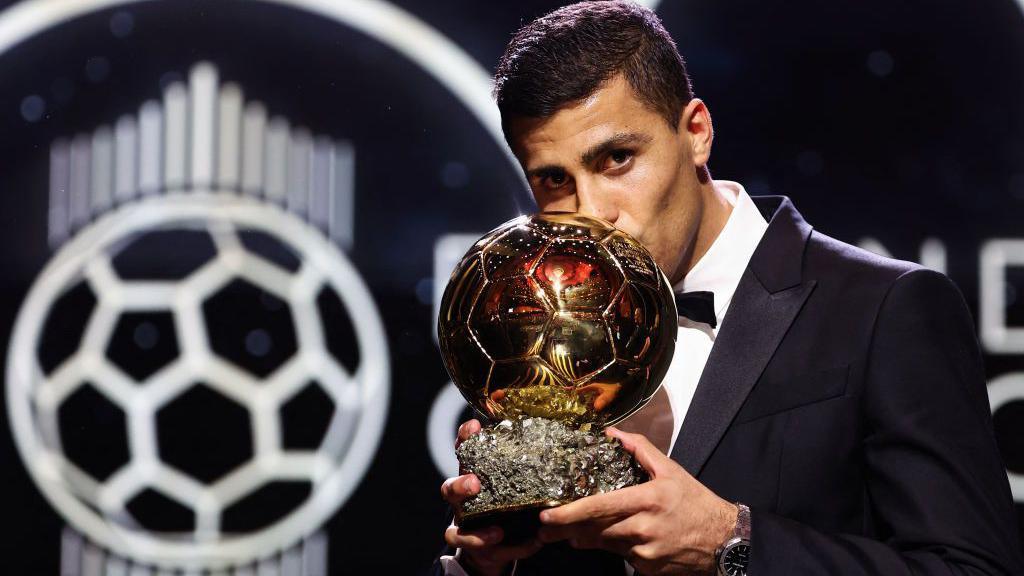 Image source, Getty Images
Image source, Getty Images
Manchester City midfielder Rodri is the current holder of the Ballon d'Or
Who has won the most Ballon d'Or trophies?
Having taken home the trophy eight times, Lionel Messi has won more the Ballon d'Or more often than any other player.
Perennial rival Cristiano Ronaldo is second with five titles, while Johan Cruyff, Michel Platini and Marco van Basten won three each.
Alfredo di Stefano, Franz Beckenbauer, Kevin Keegan, Karl-Heinz Rummenigge and Ronaldo Nazario – each with two - are the only others to have won the men's Ballon d'Or more than once.
Why is the Ballon d'Or sometimes criticised?
The awarding of the Ballon d'Or sometimes draws criticism from fans and pundits.
In the past, complaints have focused on the fact that the award has historically favoured attacking midfielders and forwards over more defensive players.
Only two centre-backs (Beckenbauer and Fabio Cannavaro) and one goalkeeper (Lev Yashin) have ever won the award.
The jury's tendency to vote for players whose teams have won the biggest prizes in the game that year, like the World Cup and Champions League, has also caused controversy in the past.
Some believe collective achievement should not impact voting, and that a player who has performed highly as an individual should not miss out because his team was less successful.
Furthermore, the fact that the main award is voted form by journalists, rather than players, coaches, or ex-professionals, has occasionally led to criticism.
Finally, for some fans, the concept of an individual award in a team sport renders the Ballon d'Or unimportant.
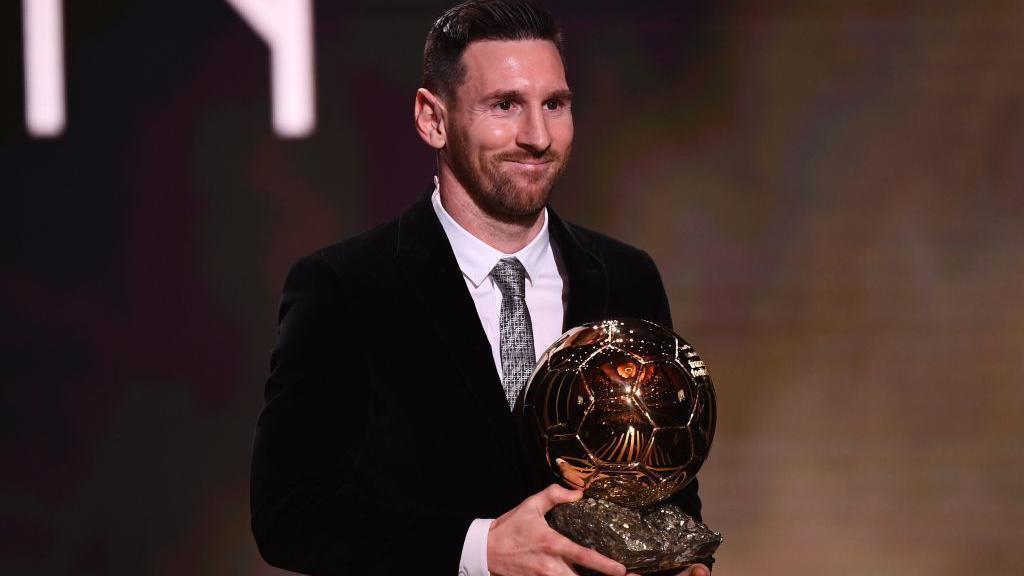 Image source, Getty Images
Image source, Getty Images
Lionel Messi won his first Ballon d'Or in 2009 and his most recent in 2023
When will the 2025 Ballon d'Or winner be announced?
The 2025 Ballon d'Or winner will be announced on 22 September 2025 during a ceremony at the Theatre du Chatelet in central Paris.
A variety of other awards are given out during the ceremony, including:
The Kopa Trophy - awarded to the best player below the age of 2021, voting for this award is performed by previous Ballon d'Or winners based on a shortlist of 10.
The Yashin Trophy – awarded to the best goalkeeper, voting for this award is performed by journalists based on a shortlist of 10.
The Coach of the Year trophy - awarded to the best manager, voting for this award is performed by journalists based on a shortlist.
The Club of the Year trophy - awarded to the best team, voting for this award is performed by journalists based on a shortlist.
Who are the Ballon d'Or contenders in 2025?
The following players are considered among the main contenders for the 2025 men's Ballon d'Or, based on their performances since 1 August 2024 with one more international window of fixtures and the Club World Cup before 31 July 2025.
Ousmane Dembele (Paris St-Germain/France, forward, 28)
Gianluigi Donnarumma (PSG/Italy, goalkeeper, 26)
Desire Doue (PSG/France, forward, 19)
Kvicha Kvaratskhelia (PSG/Georgia, forward, 24)
Kylian Mbappe (Real Madrid/France, forward, 26)
Lautaro Martinez (Inter/Argentina, forward, 27)
Pedri (Barcelona, midfielder, 22)
Raphinha (Barcelona/Brazil, forward, 28)
Mohamed Salah (Liverpool/Egypt, forward, 32)
Lamine Yamal (Barcelona/Spain, forward, 17)
What is Ask Me Anything?
This article is the latest from BBC Sport's Ask Me Anything team. Ask Me Anything is a service dedicated to answering your questions.
We want to reward your time by telling you things you do not know and reminding you of things you do.
The team explores everything you need to know and calls upon a network of contacts including our experts and pundits.
We answer your questions from the heart of the BBC Sport newsroom, and go behind the scenes at some of the world's biggest sporting events.
Our coverage spans the BBC Sport website, app, social media and YouTube accounts, plus BBC TV and radio.

 1 day ago
4
1 day ago
4
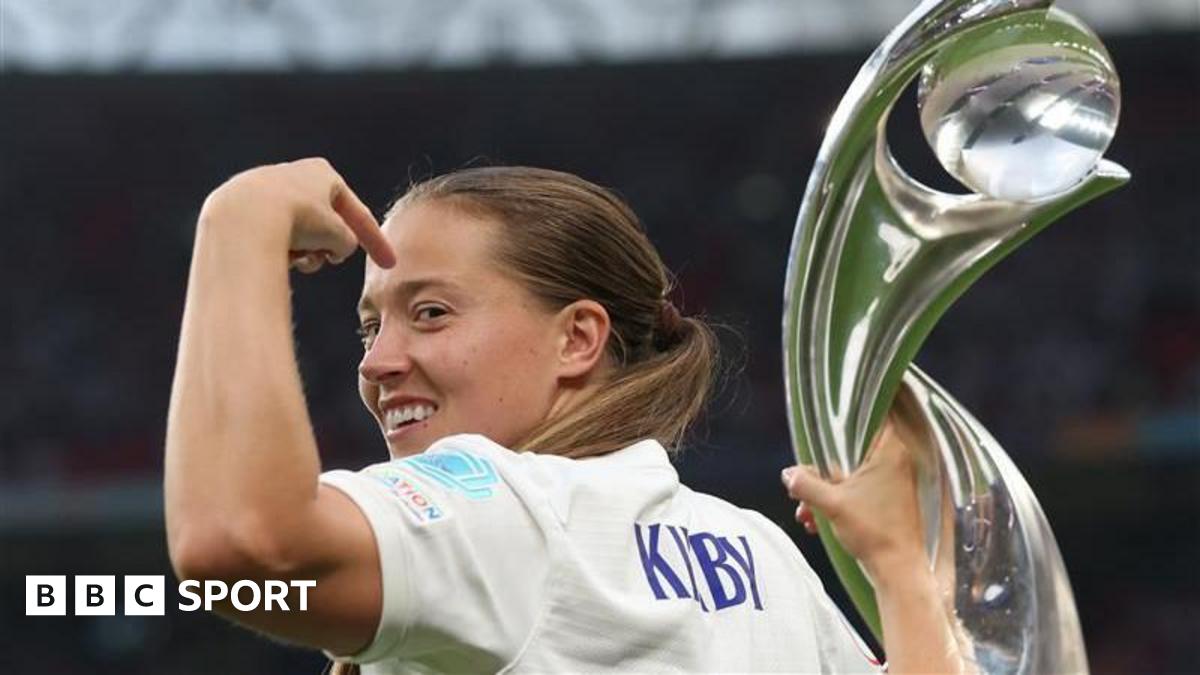
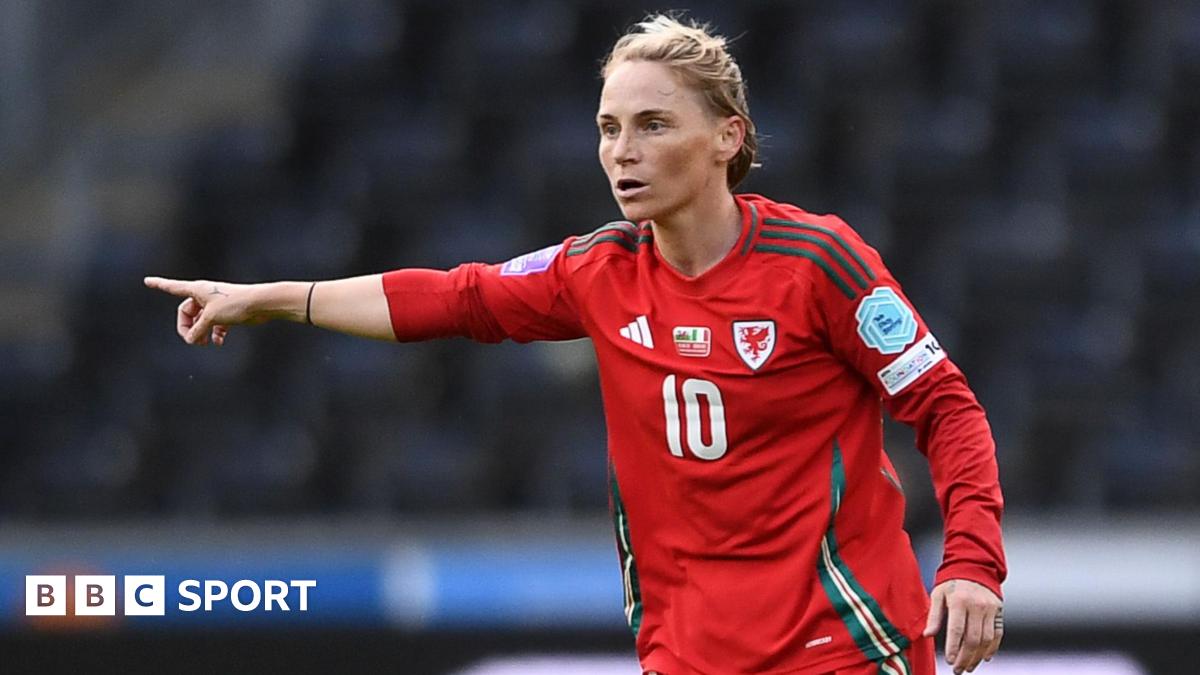
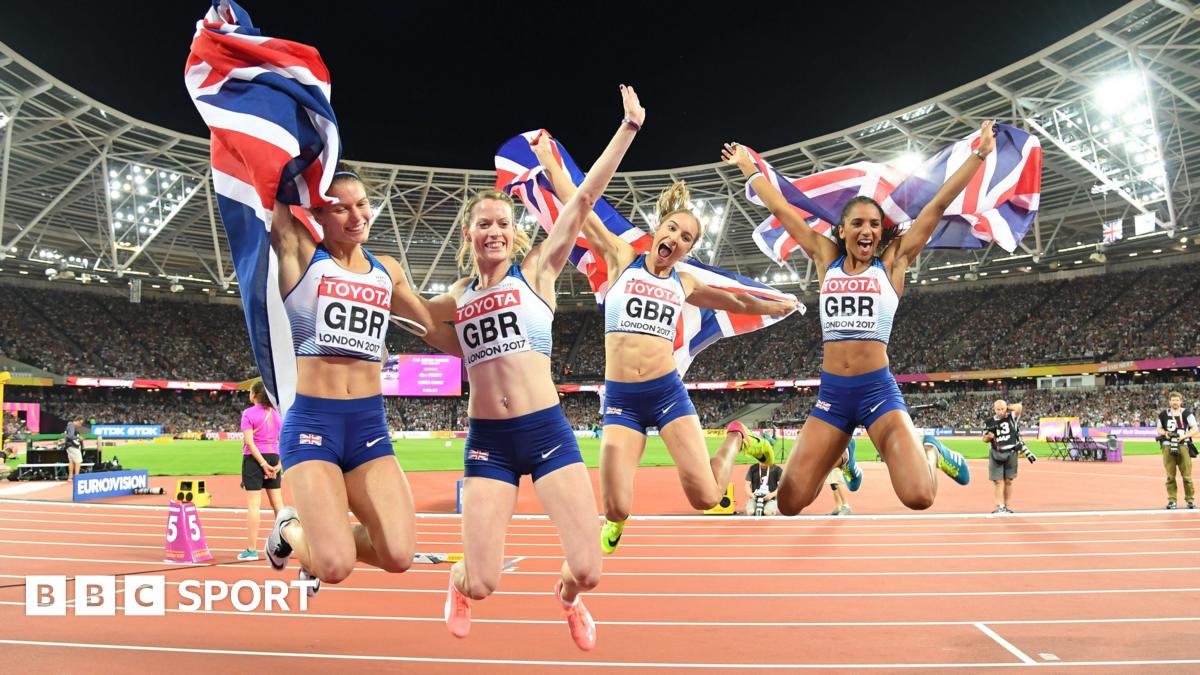





 English (US) ·
English (US) ·